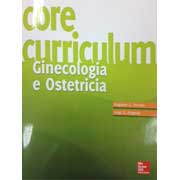340. Negative metacognitive beliefs predict sexual distress over and above pain in women with endometriosis
Cristina Zarbo, Agostino Brugnera, Angelo Compare, Rita Secomandi, Ilario Candeloro,Chiara Malandrino, Enrico Betto, Gaetano Trezzi,Massimo Rabboni, Emi Bondi, Luigi Frigerio.
Archives of Women’s Mental Health. Springer-Verlag GmbH Austria, part of Springer Nature 2018
Abstract
The aim of the study was to assess the predictive value of dyspareunia, general chronic pain, and metacognitive beliefs to sexual distress in a sample of women with endometriosis. Ninety-six women (mean age = 34.60 ± 6.44 years) with a diagnosis of endometriosis took part to this cross-sectional study. Sociodemographic and clinical data were collected by means of a structured ad hoc questionnaire.
Metacognitive beliefs and sexual distress were assessed by means of the Metacognitions Questionnaire (MCQ30) and the Female Sexual Distress Scale-R (FSDS-r). General chronic pain intensity was collected by means of a Numeric Rating Scale. Data were subjected to Hierarchical logistic regression. We found high percentages of dyspareunia and sexual distress (i.e., 66% and 76%). Findings suggested that dyspareunia and chronic pain did not predict sexual distress, while negative beliefs about worries predicted sexual distress over and above them (p = .040, odd ratio 1.159). In the target population, metacognitive beliefs may have more influence on sexual distress than pain symptomatolog
